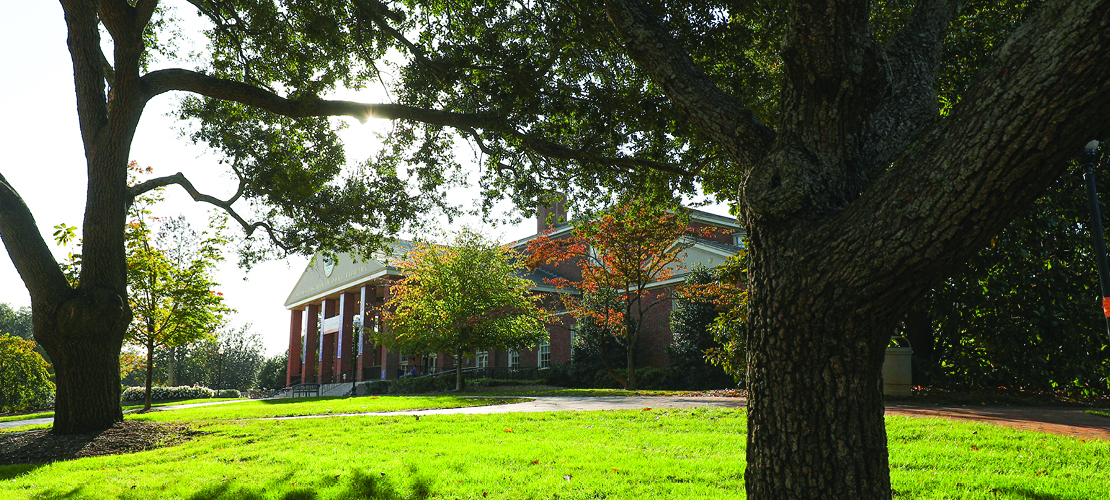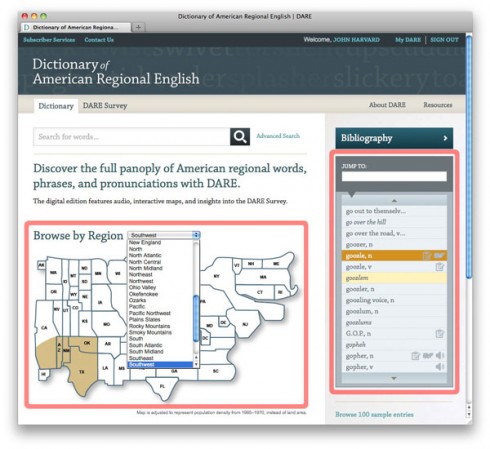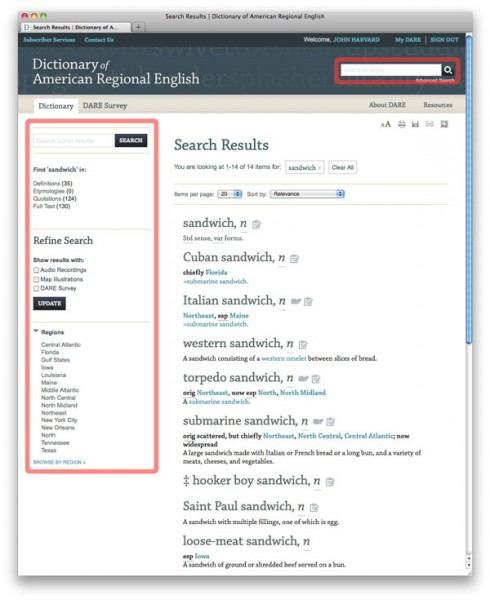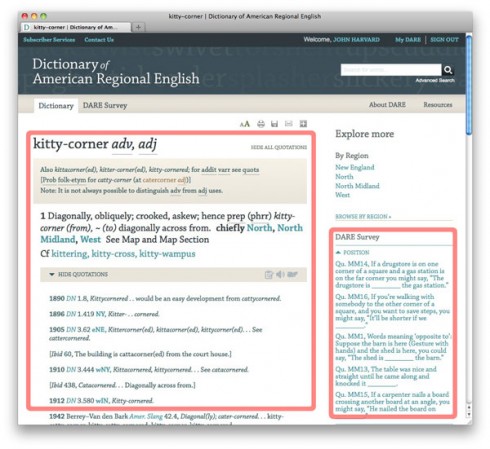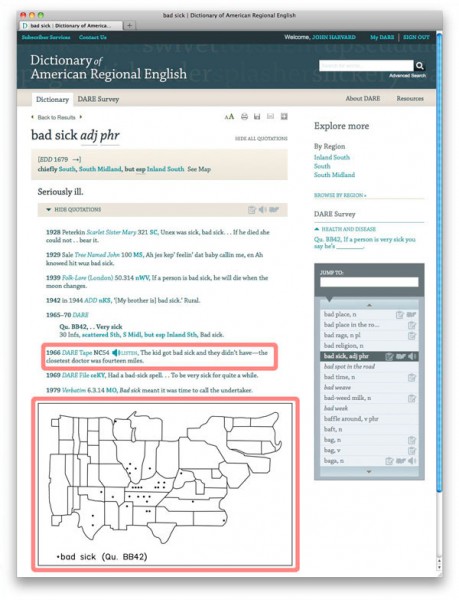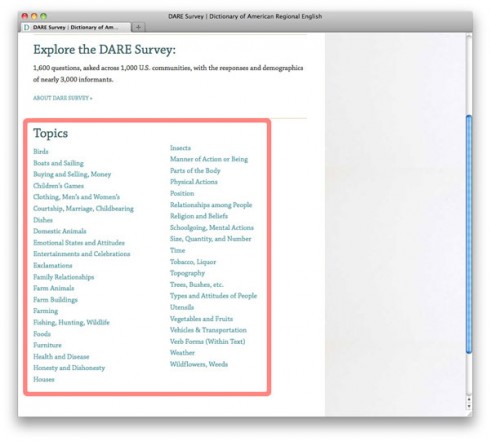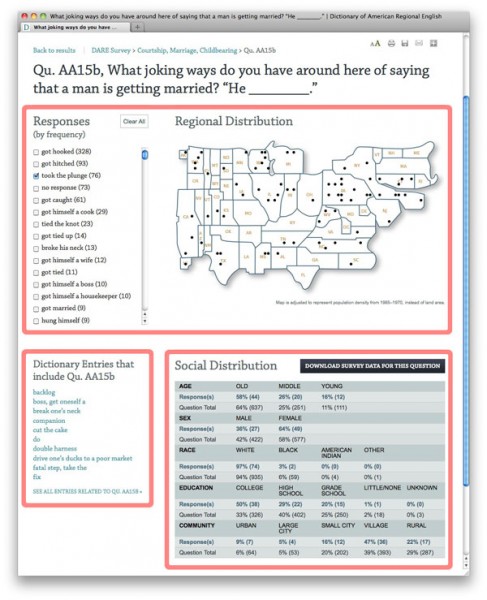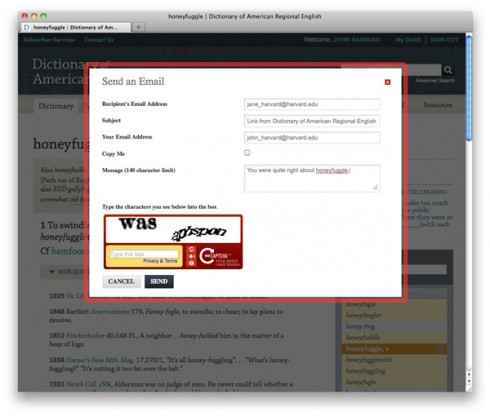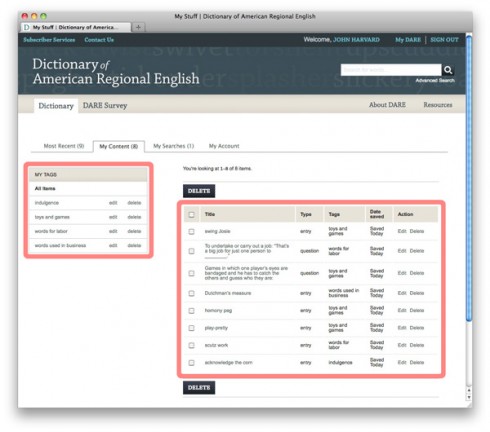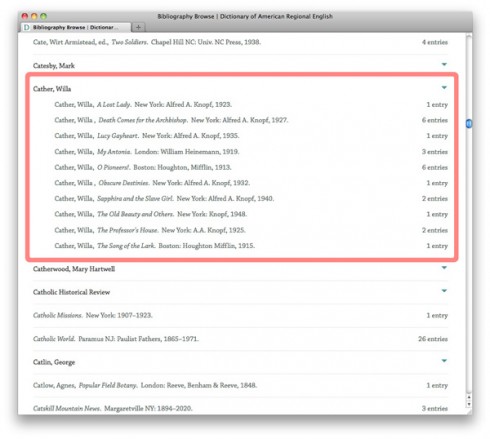We DARE you to discover the full panoply of The Dictionary of American Regional English.
1. How is the Dictionary of American Regional English different from other dictionaries? DARE is different from other dictionaries in that it does not include words that are commonly used throughout the United States, but rather focuses on the regional aspects of our language, documenting words, phrases, and pronunciations that vary from one place to another. Widely viewed as the American equivalent of the Oxford English Dictionary, DARE represents the full panoply of American regional vocabulary—from Adam’s housecat to Zydeco. Contradicting the popular notion that American English has become homogenized, DARE demonstrates that our language still has distinct and delightful local character. Whether we are talking about foods, games, clothing, family members, animals, or almost any other aspect of life, our vocabulary reveals much about who we are. DARE celebrates the color, richness, and evolution of the English language across America.
2. How is daredictionary.com different from the six DARE volumes in print? The dictionary entries contain nearly the same text as the books in print, but you can now engage with the text in many new ways and access information behind the scenes. While the entries contain all the original maps from the volumes (look for the map icon), you may also Browse by Region with an interactive map and create your own maps using the DARE survey data. The digital version also enables you to hear clips from over 4,000 audio recordings—wherever the DARE interviews are quoted (look for the audio icon). State-of-the-art searching enables you to find words in definitions, etymologies, and usage labels, in addition to regional labels.
3. How do I find out what region(s) my town is a part of? How do I search for words from my state? Browse by Region using the interactive map on the homepage to determine what larger linguistic/geographic regions your sub-region is a part of. Every state is broken into sub-regions, and your hometown could be part of more than one of them. For example, if you live in Philadelphia, you live in eastern Pennsylvania, southern Pennsylvania, and southeastern Pennsylvania – so any of these regional labels may apply to you. If you want to widen your search, Pennsylvania is also a part of the Inland North, North Midland, Atlantic, North, Appalachians, Great Lakes, Midland, Central Atlantic, Allegheny Mountains, and Northeast regions (although Philadelphia is in a different part of the state than some of these regions, as selecting them will reveal). If you wanted to discover every word used in your part of the country, you would want to explore each region related to your city and state.
How to Use DARE
Scroll through the site tour below for an overview of what’s possible with the digital DARE.
The interactive map on the DARE homepage enables browsing by region, including states and major areas within each region. The DARE word wheel replicates the serendipity of browsing a print dictionary and denotes entries that include maps or audio recordings, or that were given in response to a DARE survey question. Italicized terms are variants; highlights designate free sample entries.
Search
The dictionary Quick Search function searches dictionary headwords and variants, while the survey Quick Search covers survey questions and responses. Use Advanced Search to restrict searches to headwords, variants, definitions, etymologies, or quotations, or to target by part of speech, social label, or region. Filters allow for further refinement of results.
Entries
In addition to definitions, DARE dictionary entries note example quotations, regions of use, pronunciation, usage, etymology, cross references, and related words. Find related words via direct links from dictionary entries to relevant DARE survey question pages.
Audio & Maps
Hear more than 5,000 clips of original field recordings from the DARE survey. See regional distribution of dictionary words illustrated with nearly 3,000 maps.
Survey
The DARE survey topically groups the more than 1,600 questions asked of nearly 3,000 informants across 1,002 U.S. communities.
Survey Questions
Dedicated question pages allow easy browsing of all responses elicited by each question. Dynamically generated maps illustrate the frequency and regional distribution of the responses.
Sharing
Quickly and easily share words, searches, and DARE survey questions via email or by posting to your favorite social media sites.
“My DARE”
Use “My DARE” to save dictionary entries, survey questions, and custom searches, and to create tags for organizing your saved content.
Bibliography
The Bibliography of sources cited in the dictionary entries lists over 12,000 published sources, extending from the seventeenth century through the twenty-first.
A trial of this digital version of the Dictionary of American Regional English will be available through February 14, 2014. We would like your feedback about our trials. After you have tried this electronic resource, please come back and let us know what you think. Our feedback form is simple, and will take you less than 5 minutes to complete.


